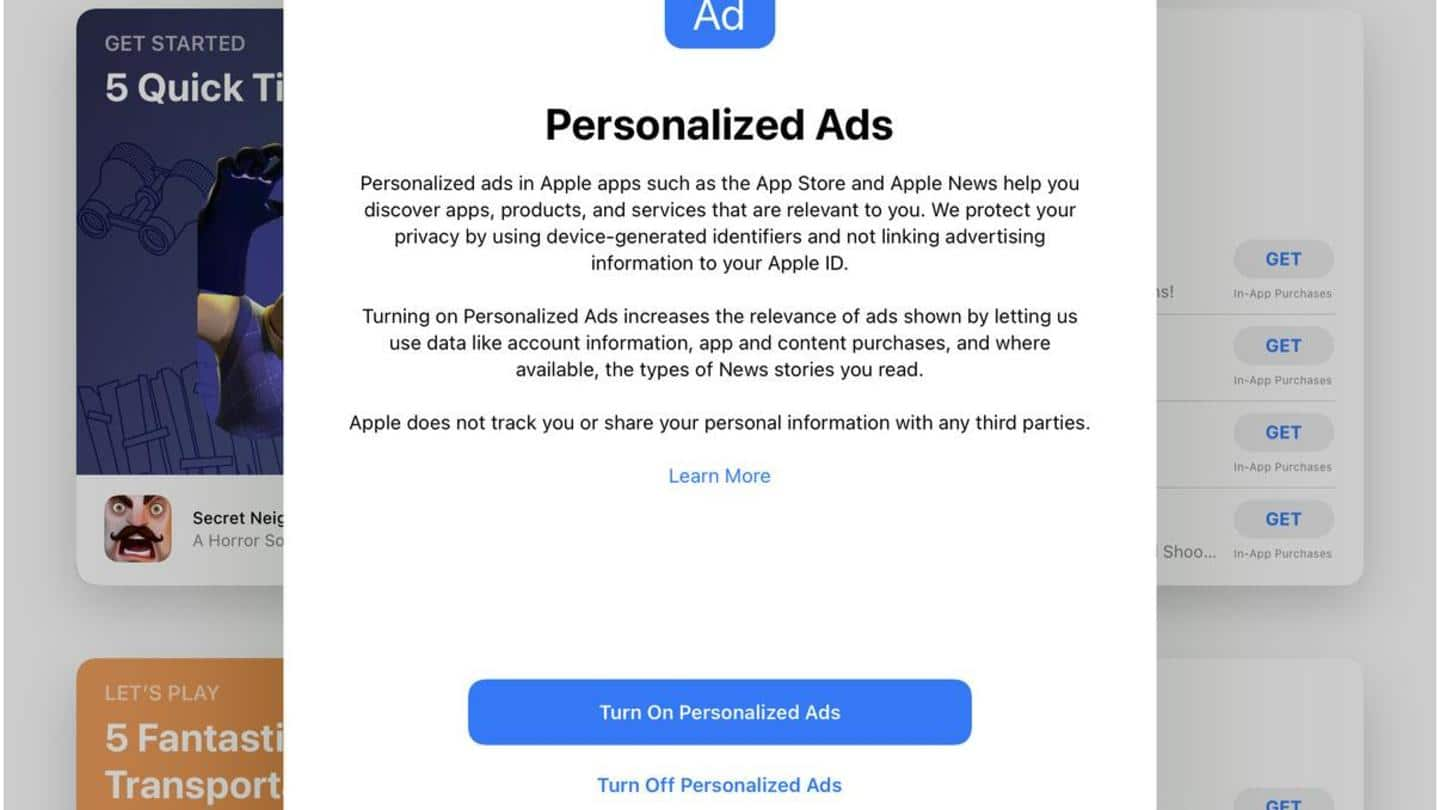
Apple's iOS 15 seeks user consent before displaying first-party ads
What's the story
Apple's latest operating system for smartphones, iOS 15, will ask for users' permission before enrolling them in the "Personalized Ads" feature. Until today, the feature assumed user consent and was switched on by default.
Apple debuted App Tracking Transparency for other developers earlier this year. It appears that the company doesn't consider itself exempt from these rules.
Here are more details.
Quick refresher
ATT policy mandates third parties seek consent before targeting ads
Apple's App Tracking Transparency (ATT) policy mandates app developers seek prior consent from users before using the unique Identity for Advertiser (IDFA) tags to track activity across apps and deliver targeted advertisements.
The policy met vehement opposition from the likes of Facebook that operate on an advertising-reliant business model. In fact, Facebook boss Mark Zuckerberg even said the company must "inflict pain" on Apple.
Opt-in
Previously, Apple assumed users were comfortable with targeted first-party ads
The ATT policy came into force with iOS version 14.5. With the latest iOS 15 beta build, Apple has rolled out a prompt titled "Personalized Ads" that explains what personalized ads are.
This is more in sync with Apple's privacy-centric image compared to an on-by-default setting buried four levels deep in the Settings app that was being used until now.
Sued!
The new prompt explains how Apple will track your usage
According to 9to5Mac, the setting being on by default had even initiated an antitrust suit against the iPhone maker in France especially since Apple limited the ability of third-party ad networks to target iOS users with ads.
The "Personalized Ads" prompt explains how first-party Apple advertising will track your usage across the product and services ecosystem to display more relevant ads on Apple services.
Clarifications
Apple claims it doesn't link collected data to Apple ID
Apple emphasized that in the interest of user privacy, it doesn't link advertising information to your Apple ID. Instead, the advertising information is linked to "device-generated identifiers."
The data collected by Apple for targeting ads includes account information, app and content purchases, and the news you read.
The company claims it doesn't share this collected data with third parties.
How-to
You can still toggle the Personalized Ads setting manually
Apple users can manually change the Personalized Ads setting by navigating to Settings > Privacy > Apple Advertising > Personalized Ads.
The new informative message brings Apple's first-party ad policy more in line with what it has outlined for third-party competitors, although ATT applies only when data is shared with third parties.
It seems fairer this way and we aren't complaining!